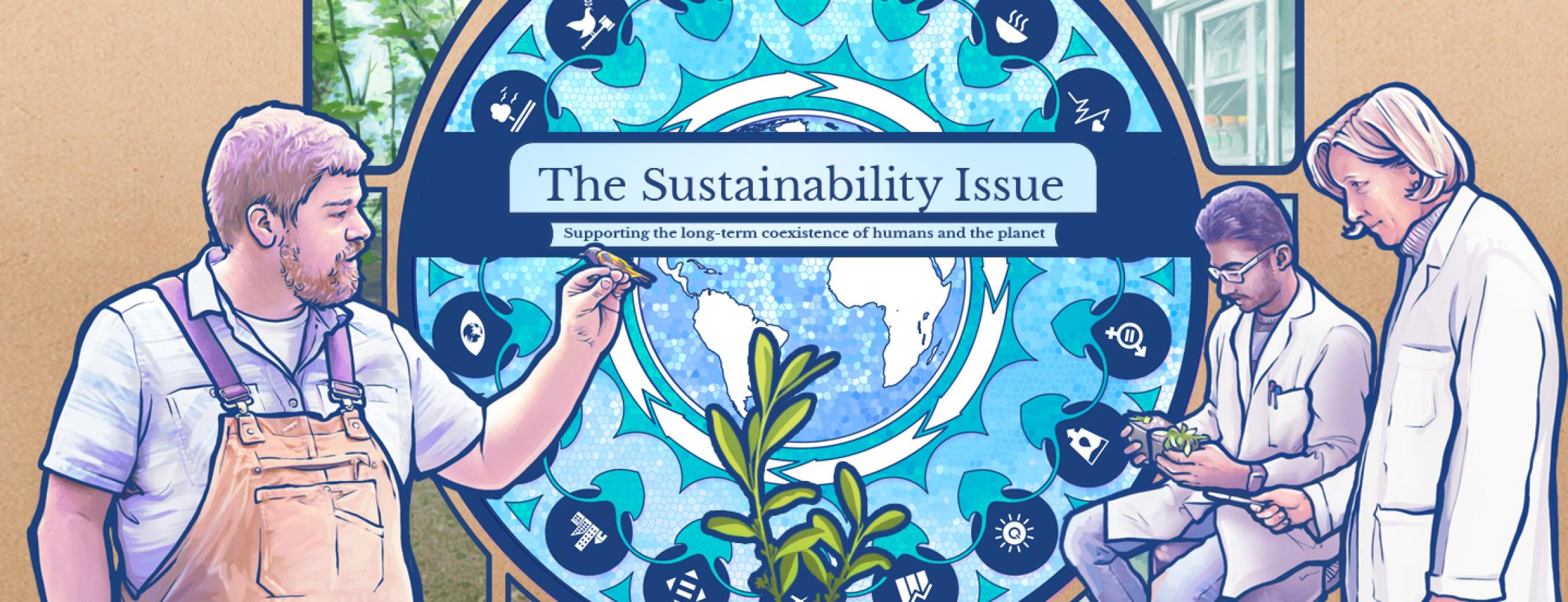After spending the past eight years at Penn State—first as an undergraduate, now as a graduate student—and living in State College, Raymond Friend said he feels like he’s really become tied to the University and the town.
So when he got the chance to contribute to Penn State’s carbon emissions reduction initiative by working on the first-ever greenhouse gas inventory for the Eberly College of Science, he took full advantage of the opportunity.
“I’ve been here a long time,” he said. “And I want to use my connections and my passion to make this place better.”

Friend first got involved in advocacy as an undergraduate, and now he has served for three years as graduate chair for the college’s Sustainability Council.
“I’ve always wanted to see Penn State pursue drawdown of its greenhouse gas emissions as well as achieve more-human-centered sustainability goals; and doing advocacy is, I think, necessary in order to see those things actually happen,” he said. “I’ve tried to connect my math to my advocacy as much as I can, and this inventory felt like a natural way to do that. Math is all about creatively applying conventions and thinking through the logic behind the numbers, and that’s what I love to do.”
Friend began working on the college’s greenhouse gas inventory in fall 2020 with his mentor Charlie Anderson, also consulting with other Penn Staters including Drawdown Scholar Catherine Gannon, College of Earth and Mineral Sciences Sustainability Council Chair Tim White, and Office of Physical Plant Compliance Manger Shelley McKeague.
The College of Earth and Mineral Sciences had completed the University’s first unit-level inventory in 2019 working with the Office of Physical Plant, and Friend said the Eberly college’s Sustainability Council decided it would do the same, “with the goal of building upon their work to make a convention that every unit at Penn State could follow if they wanted to.”
In preparing the Eberly college’s inventory, Friend said the council focused on four key tenets: replicability (“that we could do this process again, if we wanted to, and anybody else could do it for themselves”); feasibility (“that it’s reasonable to do”); consistency (“that if everybody followed the same procedure, we would come up with a consistent set of results that might add up close to what the University produces in total”); and transparency (“that we were honest about our confidence levels in our estimates”).
Finally, completed inventory in hand, Friend presented to the college’s executive committee, the University’s Sustainable Operations Council, and other Penn State sustainability councils.
“The more knowledge we have, the better,” he said. “And I learned so much in doing this—I think it would be a great research opportunity and educational experience for other students, graduate or undergraduate.”
Of course a new inventory will need to be completed periodically, but with the hard work of devising the method and establishing the framework done, Friend shifted his advocacy to sustainable transportation at Penn State.
During a two-year term on the University’s Student Sustainability Advisory Council, he worked toward improving the University’s public transit and bicycling infrastructure, reducing the dangers of vehicles on campus, and equalizing employees’ access to living close to campus, he explained: “hopefully pursuing something that’s more accessible, affordable, sustainable, and just safe and pleasant for people—way more human centered.”
Since his term ended in spring 2022, Friend has continued working independently on these and other sustainability-related issues at Penn State, always pushing for action.
“At the end of the day,” he said, “I hope we can come up with ways to ensure that the sustainability initiatives the Penn State community cares about and would really like to see happen actually do happen, and in a reasonable amount of time, because sustainable transportation and greenhouse gas emissions are only two of a diverse array of many issues.”
